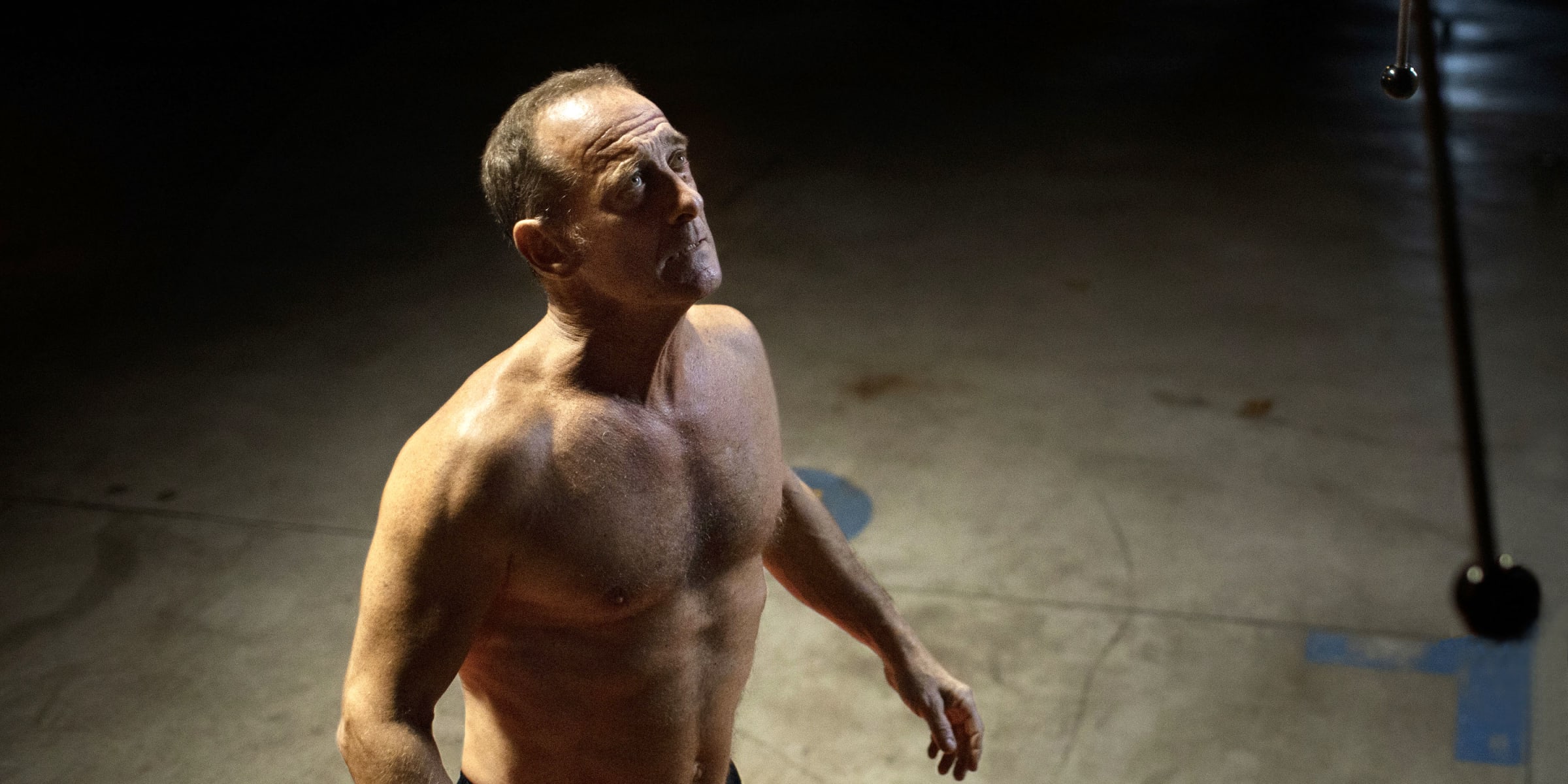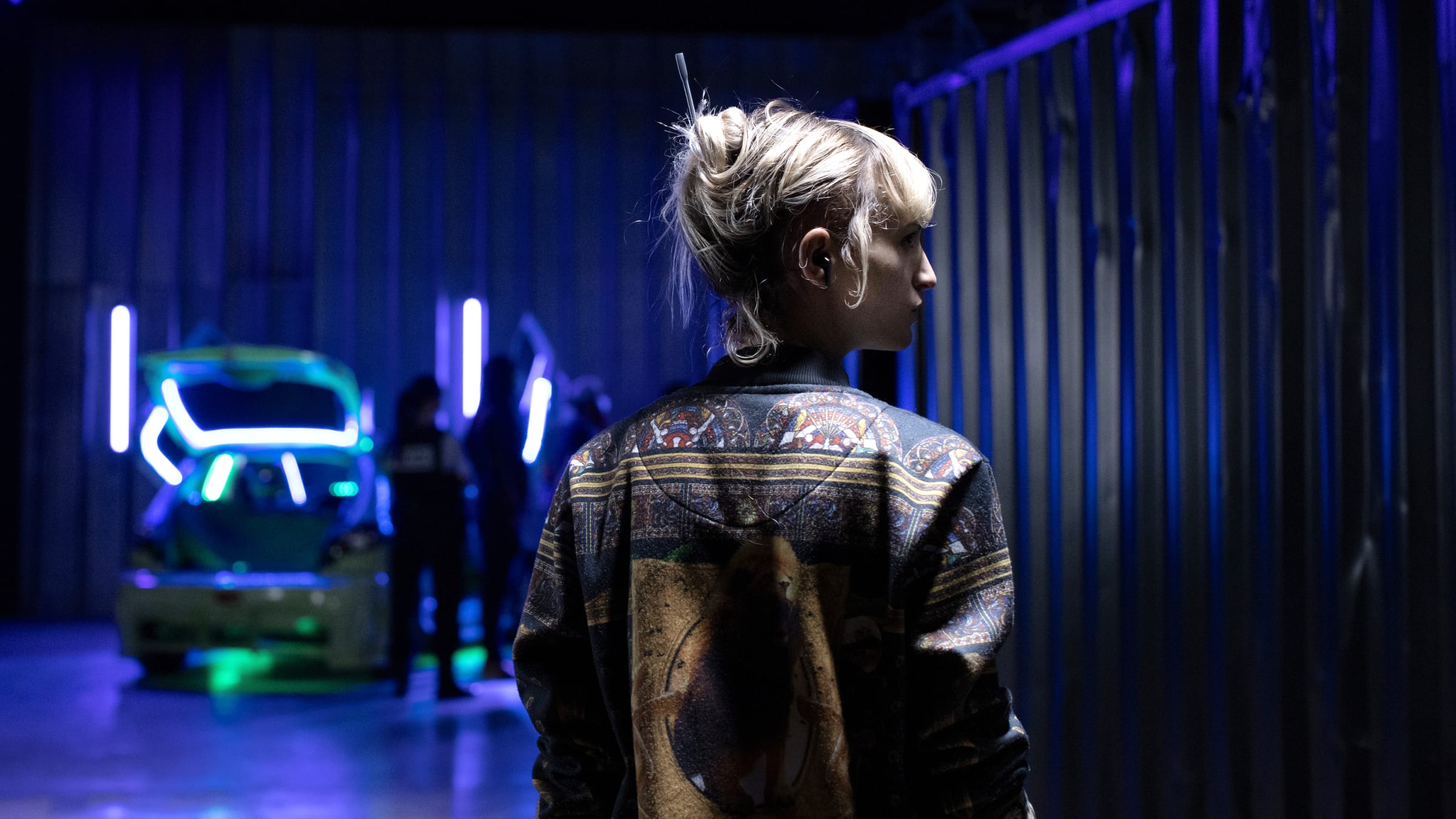Drawn to the flaws of the flesh, the blemishes that spur insecurities but reassure our commonality, French director Julia Ducournau has introduced her own elaborate vocabulary to the blood-tinged language of body horror. Ruptured skin and the ensuing scar tissue communicate messages from the inner, unseen wounds of her characters.
“I dig into imperfections because that is where humanity resides. This is where we are equal,” Ducournau tells The Daily Beast from New York City. “What I find incredibly endearing is that we spend our whole lives trying to prove that we are perfect, that we are so self-assured and ready to handle anything. In my film I try to talk about what we don’t talk about, and show what we don’t usually show.”
Her 2016 feature debut Raw, where a veterinary student dabbles in cannibalism, sparked mythical tales of people fainting and vomiting at the film’s Toronto International Film Festival screening. Amid the controversy, the filmmaker’s reputation as an artist with a taste for stylish provocation was cemented.
Now with her sophomore cinematic incision Titane, for which she became only the second woman to win the coveted Palme d’Or at the Cannes Film Festival, Ducournau maintains her fascination for corporeal defects and shocking imagery, but imbues it with more philosophical panache. Grotesquely dazzling, her latest is a tale of usurped identity, an unwanted pregnancy, sentient machines, and parental torment enveloped in the constant subversion of gender and genre conventions.
Julia Ducournau poses with the Palme d’Or for Titane during the 74th annual Cannes Film Festival on July 17, 2021, in Cannes, France.
Pascal Le Segretain/Getty
Convinced that our visceral understanding of physical pain is the most honest entry point to empathy for others, even those with questionable morality, the director aims for the viewer to relate to the bodily experience of the protagonist of Titane—Alexia, a car show model turned merciless murderer—without condoning her vicious acts.
“I’m going to give you a stupid example. If you see someone who’s being stabbed in the hand, you personally will not have been stabbed in the hand, probably ever, but watching that you will have an immediate reaction of empathy in your body, like it hurts you as well. You know this thing we do, going like ugh, because we know it hurts and yet you’ve never experienced it,” she explains. “That’s exactly what I’m trying to do in my work. It’s a way for me to empathize with characters that are not your typically likable characters.”
Searching for someone to embody the part of Alexia/Adrien (the character’s other iteration), Ducournau envisioned an androgynous look and hoped to find a non-professional actor. Initially, she and her casting director Constance Demontoy scoured Instagram, checking both male and female profiles. That’s how she came across her mystifying star Agathe Rousselle.
“You have to understand also that it’s very important for me to want to film someone, and that’s something that you can’t really put into words. You feel drawn, like you want to put the camera on that person and you want to film them from every angle. That’s what I felt when I saw her,” she notes.
And yet, a dose of doubt remained since Rousselle had no previous credits. Multiple follow-up meetings took place to ensure that the young woman had acting potential beyond her ideal appearance, and if her disposition was congruent and conducive to the director’s needs. Committed to seeing it through, Rousselle worked on both her acting skills and her body for about a year, training with a coach in order to gain muscle, with a dancer to master the routines, and with stunt professionals in preparation for violent sequences.
“When you experience something is very different from understanding it. I had a rough first few days. The transformation was the most difficult thing, because it was on my body, not just a psychological twist,” Rousselle says over Zoom. “I had a broken nose, no eyebrows. I would look really weird, and really not pretty. That was kind of a shock.”
While the implementation of VFX was pivotal for Ducournau’s world-building, particularly in the final throes of her mad escapade, the use of prosthetics on set helped Rousselle inhabit her character. Despite the time and difficulties using the painstaking application of these tangible elements adds to the shooting process, the director prefers them because of the irreplaceable texture they convey on camera, which resembles the unevenness of real skin.
“I’ve never been pregnant. I don’t know how it feels, but when you have this fake belly glued to your sides that actually replicates the actual weight of a pregnant belly, the way you move and your posture changes,” said the first-time actress. “You can’t sit on a chair normally. You have to almost lie down. Being very uncomfortable helped.”
“You can’t sit on a chair normally. You have to almost lie down. Being very uncomfortable helped.”
Conversely, for Vincent Lindon, the veteran actor playing a fireman (also named Vincent) longing for his lost son, the metamorphosis wasn’t superficial. Ducournau relied on his role to ground the film. Audiences have to be certain that the undying love for his child blinds him into believing Alexia is Adrien. Part of that hinged on a façade of brute strength that relayed his objection to getting older. He needed a muscular physique.
Lindon underwent two years of rigorous exercise to chisel his body. As a man in his early sixties, the process had to happen gradually—with an intense sprint toward the finish line three months before shooting. The director describes the Vincent on screen as “a golem with feet made of clay, an impressive mass of muscles that is supposed to be strong but that will crumble at the tiniest shake,” and Lindon identifies with his mortal plight.
“He and I, we share the same fear—the fear of dying. We are afraid of death and maybe me, Vincent Lindon, unconsciously wanted to do that part to work on my body. It’s my way of fighting against death, to seem younger. The character and I, we have this same trouble. Alexia, it’s the contrary. She’s afraid about living because she doesn’t have any more love,” shares Lindon. “They are both completely lost, so when they meet, they rediscover what love is.”

Ducournau has her own take on what frightens the Vincent in her deranged fiction: “The main fear of this character, to be perfectly honest, is being useless. He wants to find a new purpose by shaping Alexia into his fantasy, his reborn son, because that way he doesn’t have to stop being a father,” she says.
Conscious from the onset that Titane would feature minimal dialogue, partly because its main character must stay silent to protect her impersonation of Vincent’s son, Ducournau placed the pathos in the pair’s physical interactions, mainly dance: a dialogue between bodies that provides an immediacy of connection. For Lindon, the dance interludes represented a psychological obstacle—since childhood, he’s been apprehensive about dancing, terrified of ridicule. Letting himself go in Titane was liberating.
“I discovered something about me that I didn’t know—something about freedom, about doing what you want at the time you want to do it, and without caring about people watching you—and it’s very important for me. At that moment something changed in me,” offers Lindon. “I will be able to do things in movies that I’m very afraid of because I went through that dancing scene. I’m not joking. Sometimes a few hours in your life can really shock you and you never forget them.”
Vital in the evolution of the relationship between Vincent and Alexia (or Adrien in his eyes) is the aforementioned moment: witnessing the father-son pair joyously prancing to the music with a group of firemen around them. According to Ducournau, this is when they are no longer living in a fantasy, lying to each other. They look at each other and they smile, and they find truth and see beyond the deceit. Words would ruin that sincere realization.
Later, another musically-driven story beat evinces how Ducournau plays with gender expectations. As Alexia, the anti-heroine performs a sensual dance on top of an outrageously adorned muscle car, but when she replicates those movements presenting as a young man atop a macho truck, onlookers shun her with looks of disgust and embarrassment. The male gaze feels threatened witnessing mannerisms they define as feminine deployed by a body they perceive as masculine.

Agathe Rousselle in Titane
NEON
Ducournau built gender stereotypes into her characters—the over-sexualized model and the buff male hero—and then destroyed them one by one, even swapping the traits we typically associate with one gender with a character of the opposite sex.
“What I want to show is that gender is a social construct that limits us as individuals and also limits us in the interactions that we have with others, which means it limits the way society functions,” explains Ducournau. “It’s about being complete. When she is dancing on the truck, it’s a moment where she shows herself as being fully complete—she is both Alexia and Adrien, and at the same time, she is none of them. Gender is irrelevant in terms of the definition of an identity.”
Alexia’s self-identification is in perennial flux, not only as it relates to being a woman, a man, or neither, but regarding her emotional arc. “Identity is something that is in constant change. You know who you are and you go along with it, but you change all the time because things happen to you, life happens. That’s what happens to the character,” adds Rousselle. “Alexia is this tough psychopathic character but she changes and she learns as she goes. It’s like Tony Soprano says, ‘You live, you learn.’ She lives, she learns.”
Continued transfiguration is the doctrine by which Ducournau abides. In thinking of how her works interact with one another, she points to Garance Marillier, an actress who has appeared in three of her directorial projects, always playing a character named Justine but morphing along the way. She is Justine in her short film Junior, another Justine as the lead in Raw, and a supporting figure also named Justine in Titane.
Ducournau sees her characters as mutations of themselves. They come in different forms each time, but something essential remains from their previous versions. Reluctant to disclose details about the ending of Titane—and for good reason—the director did speak of how its meaning aligns with this notion of perpetual reinvention.
“For me, the last scene is another mutation. It’s a rebirth in a place where there is love, there is acceptance, and the question of gender is completely absorbed by this unconditional love,” says Ducournau. “That’s the only thing that matters at this moment—for there to be life and for there to be a new world, a new kind of humanity.”